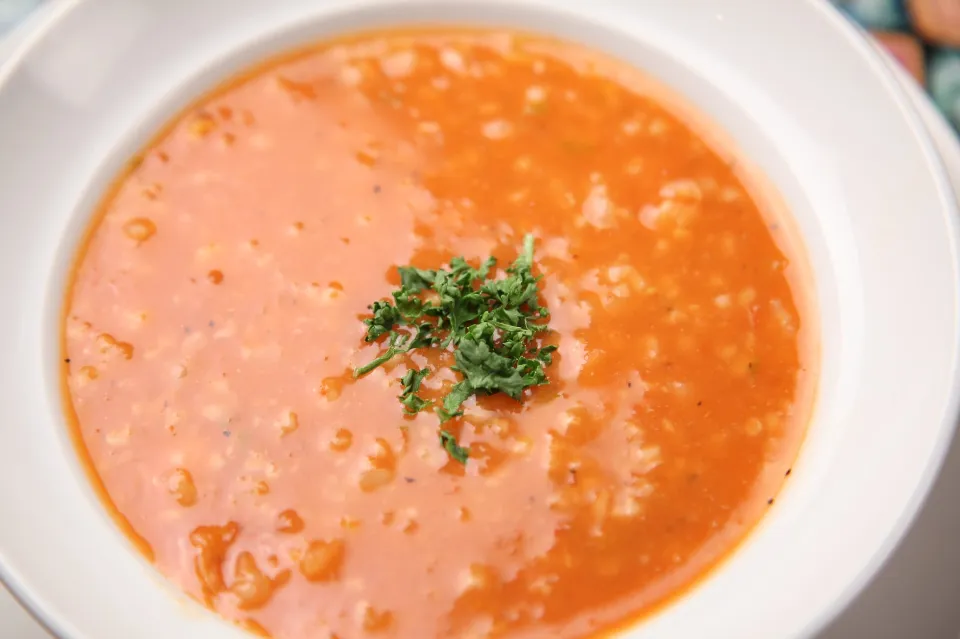
What to Eat After Root Canal Surgery – Nourishing Your Recovery
A common dental procedure called a root canal aims to save a tooth that has been damaged and relieve pain. A healthy diet and appropriate post-operative care are essential for the healing process after this treatment.
This article will walk you through the necessary foods to eat following root canal surgery. We’ll look at options that offer the nutrients required to support recovery, lessen inflammation, and improve oral health.
We’ll assist you in developing a meal plan that promotes recovery and ensures the best results, including foods that are soft and simple to chew as well as those that are high in vitamins and minerals. Let’s encourage your healing and create the conditions for a pain-free, healthy smile.
Read More: How Long Does a Root Canal Take
What to Eat After Root Canal Surgery
Soups

Although you don’t have to stick to a liquid diet, soups can be a bit more flavorful and filling than a shake, and you won’t have to worry about biting into anything that will break your teeth. Just give it a little time to cool down.
Greek Yogurt
Another satiating, soft food is sugar-free yogurt (of course without the granola). Even if you’re not quite in the mood for a substantial meal just yet, you can keep your tastebuds satisfied because it is available in a variety of flavors.

Eggs
Eggs are quick and simple to prepare, provide a solid meal for your stomach, and don’t require much chewing. You can make a meal suitable for a dentist after a root canal by scrambling up a few of them and seasoning them to taste with salt and pepper.
Broth
After receiving dental care, warm broth is a great thing to sip on when your mouth hurts. To avoid accidentally burning your tongue or the roof of your mouth, just be careful that it isn’t too hot. If you’re careful, it’s completely fine, but typically your dentist advises waiting to drink anything until you get some feeling back in your mouth (just because of the mess factor).
Bananas
Bananas are also part of the “BRAT” diet (bananas, rice, applesauce, toast) that’s great if you’re nauseous. If your jaw is still a little sore from your dental procedure, you should probably mash or slice your bananas to make them easier to eat.
Quinoa
Quinoa is wholesome and filling, like oatmeal. especially if the appropriate seasoning has been added! Just make sure it’s cooked perfectly; otherwise, you might find that tiny bits of quinoa are getting caught in the spaces around your temporary crown, making it a little more challenging to floss.)
Smoothies
If you happen to have a blender on hand, pick up some frozen fruit, OJ, yogurt, or protein powder and prepare some pre-packaged smoothie bags that you can grab whenever you feel hungry. Any sore gums or sensitive injection sites benefit from the cooler temperature.
Ice Cream
With ice cream, you can never go wrong. particularly after dental procedures like wisdom tooth removal or extractions. Ice cream is a staple to keep in the freezer if you prefer to stick to soft, cold foods for a few days!
Foods to Avoid After a Root Canal Procedure
In addition, certain food groups should be avoided after a root canal procedure because they may exacerbate any sensitivities you may be experiencing or jeopardize your temporary filling. You can gradually reintroduce them into your diet as time goes on.
We recommend avoiding:
- Very hot and very cold foods and beverages, which can irritate sensitive teeth
- Sticky foods like gum, caramels, and other candies
- Chewy foods like steak and crusty bread
- Hard foods like nuts
- Crunchy foods like pretzels and tortilla chips
You can resume eating normally once your permanent restoration is in place, but use your best judgment if you notice that a particular food makes your treated tooth feel sensitive. If this happens, stop eating that food and try it again another time.
After a week or more has passed and you’re still sensitive and sore, call our office.
Read More: Are Root Canal Safe
When to Contact Your Dentist
Within a few days following the procedure, the majority of tooth sensitivity and pain should go away. To find out if there might be a problem, call your dentist if symptoms worsen or do not improve within the first week.
The following reasons are also cause for concern and should be checked out by your dentist:
- Prior symptoms, from before the root canal, reappearing
- Swelling that is noticeable either inside or outside your mouth
- Temporary crown falling out
- An allergic reaction that causes itching or hives
- An uneven feeling when you bite down
The majority of the time, a root canal relieves tooth pain within a few days. It ought to take you only a short while to get back to your regular routine.





Average Rating